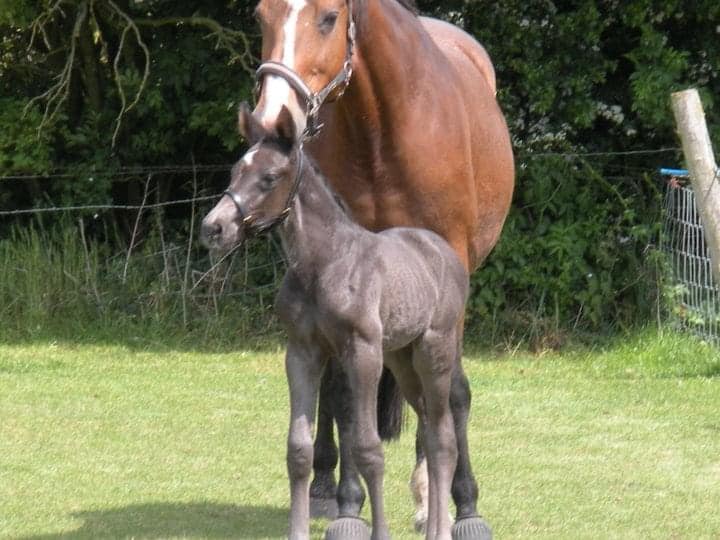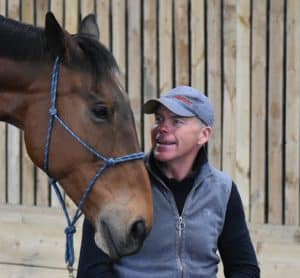I remember so vividly the night our first foal was born. His mother “Angel”, my stunning 16’3 Dutch Warmblood, was so precious to me that I felt honoured to be on hand to help pull her strapping colt foal into the world. It was late at night and she was tired, but early the next morning she was keen to go out into the paddock to stretch her legs and show off her baby.
As we turned Angel & Angelo out, watching them both trot off around the field, my friend turned to me and said something I will always remember “look at him trot, perfect outline & looks already to be “on the bridle”. He was less than 12 hours old and could do with grace and ease something we riders strive for years to achieve with them. Those first few days I watching him walk, trot, canter, gallop, jump a shadow on the floor, do a flying change and bend left & right as easy as taking a breath. So, I asked myself, why do the problems start when riders get involved?
I want to start by saying that nobody owns a horse, spending oodles of money and time on them because they don’t like them or want to do wrong by them. We love our horses, we want the best for them and we try our best for them. But, and yes there is a but, we all know riding isn’t a simple task. Sadly, many riders, who’s hopes, dreams, fears and emotions are etched into their minds, have an expectation that their horse partner is complicit and on the “same page” and here is where so many of the problems start.
I train horses and I train riders. I have done this for many many years and, in all honesty, I can say that, for the majority of cases, the horse is the easier of the two to train. I think this is because horses have no pre-conceived ideas as to how they are meant to be going or what they are supposed to do, until it is explained to them. I believe that it is within this window of explanation that the confusion starts. We don’t mean to confuse them, but every time we interact with a horse we are “training” it, good or bad, our actions imprint on them as to what we expect and what we accept.
Taking responsibility – just trying hard is not enough, we need to understand how our actions translate to our beloved horse for them to be a willing part of our journey. Let’s assume here that most of us have a horse that has been owned by someone before us. We don’t know what he has been taught, how effective this teaching has been and whether he actually understands or just goes with the flow to avoid being whipped, pulled about or shouted at. Learning is not a linear process, just because a horse can do a certain thing – complete a BE80, ride clear round a British Novice track, it doesn’t mean he understands all the things asked of him to get there. So, why does it matter? It matters for a multitude of reasons….for instance their progress may be limited by their lack of understanding so as the heights go up and the questions get harder they start to struggle, or it may be the case that as a rider we get into difficulty (out hacking for example) and we need to know our horse understands what we are asking so they can help get us out of trouble. However, more important that all that is that a well trained horse that understands what we are teaching him, goes well. He goes like the graceful foal in the field. And “going well” gives him the best opportunity to avoid injury, soreness, stiffness and fatigue.
It all starts with us and our mindset. Like it or not, your equine partner is not a human. He doesn’t come with human understanding, he doesn’t have our complex brain and he definitely doesn’t have the emotional baggage of a hard day at work or an argument with the kids. So to help us be better horse communicators we should start from a clear viewpoint of “it is my responsibility to help my horse understand, he has no responsibility to do so, so I must keep it simple, repeat it and look to what I myself am doing wrong before blaming my horse”


